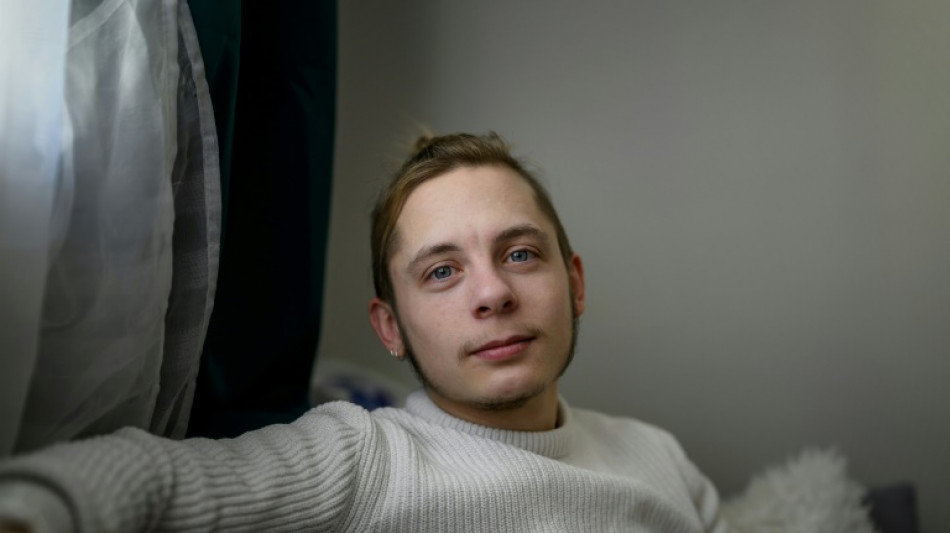
-
 Sophie Adenot, the second French woman to fly to space
Sophie Adenot, the second French woman to fly to space
-
Alleged rape victim of Norway princess's son says she took sleeping pills

-
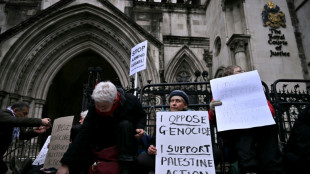 Activist group Palestine Action wins legal challenge against UK ban
Activist group Palestine Action wins legal challenge against UK ban
-
Driven by Dhoni, Pakistan's X-factor tweaker Tariq targets India

-
 Davidson set to make history as Ireland seek to rebound against Italy
Davidson set to make history as Ireland seek to rebound against Italy
-
Europe defends NATO, US ties at security gathering

-
 China's fireworks heartland faces fizzling Lunar New Year sales
China's fireworks heartland faces fizzling Lunar New Year sales
-
Bangladesh's Yunus 'banker to the poor', pushing democratic reform
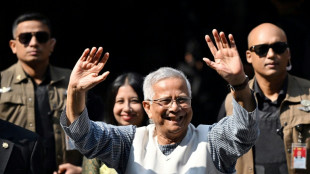
-
 Cracknell given Six Nations debut as Wales make changes for France
Cracknell given Six Nations debut as Wales make changes for France
-
L'Oreal shares sink as sales miss forecasts

-
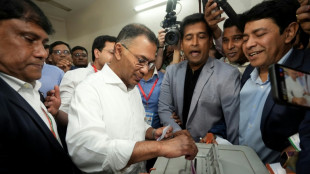 Bangladesh nationalists celebrate landslide win, Islamists cry foul
Bangladesh nationalists celebrate landslide win, Islamists cry foul
-
Thai PM agrees coalition with Thaksin-backed party
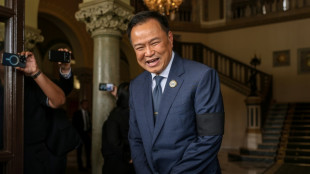
-
 Zimbabwe pull off shock win over Australia at T20 World Cup
Zimbabwe pull off shock win over Australia at T20 World Cup
-
Merz, Macron to address first day of Munich security meet

-
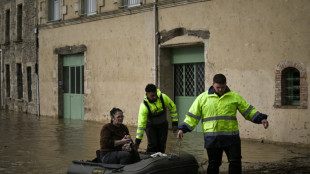 Three dead, many without power after storm lashes France and Spain
Three dead, many without power after storm lashes France and Spain
-
Bennett half-century as Zimbabwe make 169-2 against Australia

-
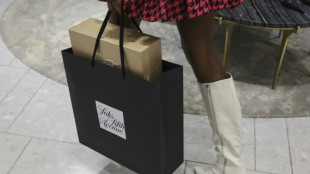 Asian stocks track Wall St down as traders rethink tech bets
Asian stocks track Wall St down as traders rethink tech bets
-
'Weak by design' African Union gathers for summit
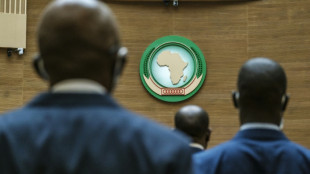
-
 Nigerian conservative city turns to online matchmaking for love
Nigerian conservative city turns to online matchmaking for love
-
Serb-zero: the 'iceman' seeking solace in extreme cold
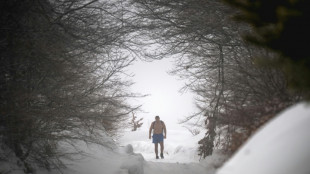
-
 LeBron James nabs another NBA milestone with triple-double in Lakers win
LeBron James nabs another NBA milestone with triple-double in Lakers win
-
Hundreds of thousands without power after storm lashes France
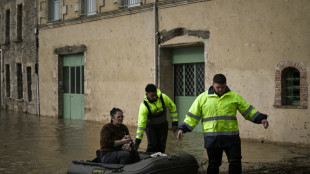
-
 US Congress impasse over migrant crackdown set to trigger partial shutdown
US Congress impasse over migrant crackdown set to trigger partial shutdown
-
AI's bitter rivalry heads to Washington

-
 South Korea hails 'miracle' Choi after teen's landmark Olympic gold
South Korea hails 'miracle' Choi after teen's landmark Olympic gold
-
England seek statement Six Nations win away to Scotland

-
 Trent return can help Arbeloa's Real Madrid move forward
Trent return can help Arbeloa's Real Madrid move forward
-
Battling Bremen braced for Bayern onslaught

-
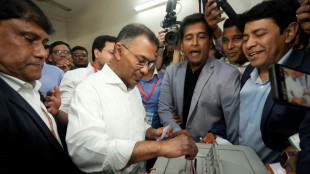 Bangladesh nationalists claim big election win, Islamists cry foul
Bangladesh nationalists claim big election win, Islamists cry foul
-
Tourists empty out of Cuba as US fuel blockade bites
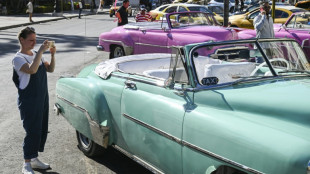
-
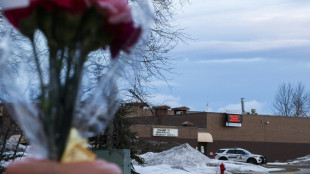 Tearful Canadian mother mourns daughter before Carney visits town shaken by killings
Tearful Canadian mother mourns daughter before Carney visits town shaken by killings
-
Italy dream of cricket 'in Rome, Milan and Bologna' after historic win

-
 Oscars museum dives into world of Miyazaki's 'Ponyo'
Oscars museum dives into world of Miyazaki's 'Ponyo'
-
Dieng powers Bucks over NBA champion Thunder

-
 Japan seizes Chinese fishing vessel, arrests captain
Japan seizes Chinese fishing vessel, arrests captain
-
Bangladesh political heir Tarique Rahman poised for PM
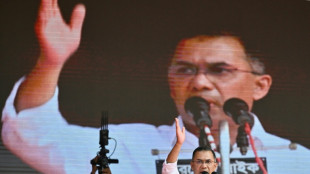
-
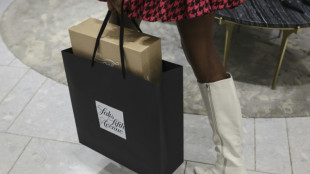 Asian stocks track Wall St down but AI shift tempers losses
Asian stocks track Wall St down but AI shift tempers losses
-
Bangladesh's BNP claim 'sweeping' election win
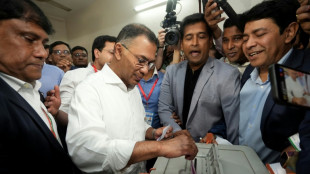
-
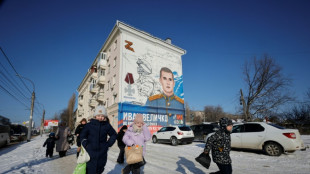 Drones, sirens, army posters: How four years of war changed a Russian city
Drones, sirens, army posters: How four years of war changed a Russian city
-
Crowds flock to Istanbul's Museum of Innocence before TV adaptation
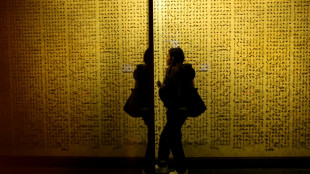
-
 North Korea warns of 'terrible response' if South sends more drones
North Korea warns of 'terrible response' if South sends more drones
-
NASA crew set for flight to ISS

-
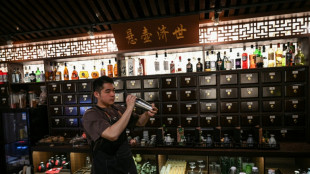 'Punk wellness': China's stressed youth mix traditional medicine and cocktails
'Punk wellness': China's stressed youth mix traditional medicine and cocktails
-
Diplomacy, nukes and parades: what to watch at North Korea's next party congress

-
 Arsenal, Man City eye trophy haul, Macclesfield more FA Cup 'miracles'
Arsenal, Man City eye trophy haul, Macclesfield more FA Cup 'miracles'
-
Dreaming of glory at Rio's carnival, far from elite parades

-
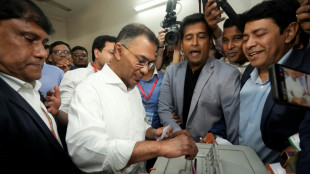 Bangladesh's BNP heading for 'sweeping' election win
Bangladesh's BNP heading for 'sweeping' election win
-
Hisatsune grabs Pebble Beach lead with sparkling 62

-
 Abasca Resources Announces Engagement of High Grade Mining Consulting Ltd. and Non-Brokered Private Placement of up to $3.0 Million
Abasca Resources Announces Engagement of High Grade Mining Consulting Ltd. and Non-Brokered Private Placement of up to $3.0 Million
-
Darrell Kelley and Business Partners to Visit Ghana for Humanitarian Engagement and Exploratory Discussions


Insults and acceptance: being trans in rural France
Valerie Montchalin found out who her friends were when she transitioned to being a transgender woman in her village high in the Massif Central of central France.
Some turned their backs on the 52-year-old builder. And she was not invited to the village get-together.
Everybody knows everybody -- and everything about them -- in Saint-Victor-Malescours, a village of 700 souls surrounded by wooded hills.
Montchalin kept her secret for decades. She knew she was different "when I was six or seven... without being able to put a word on it. But if I had told my mother that I didn't feel right in my body, I would have got a good slap," she told AFP.
Her family were afraid of "what people would say".
So, growing up, "I did what was expected of me," she said. She became a builder, married at 22 and had two children. As a man, she was "gruff, pretty macho -- the opposite of what I really was," Montchalin admitted.
But she was "suffering" inside, the discomfort particularly acute in men's clothes shops or when she looked into a mirror at the barbers. Finally, at age 48, she came out to her wife and children.
Since then, Montchalin has moved to the nearest city, Saint-Etienne, where she is receiving hormone therapy. She has let her hair grow and regularly goes to the beautician. "I am quite coquettish."
Her workers were initially quite "shocked", but now they greet her with a kiss on the cheek.
Her transition was not a dramatic "flag-waving one", she says -- a feeling echoed by six other transgender people from rural areas who talked to AFP.
All told how they learned to deal with the isolation and odd looks and of having to travel for hours for medical attention. Being transgender in the French countryside can be a long and lonely path.
- 'Rejection' -
Yet rarely have transgender people been more in the news.
On the one hand "Emilia Perez", a film about a transitioning Mexican drug lord, won two Oscars this month after triumphing at Cannes and the Golden Globes.
On the other, US President Donald Trump banned transgender people from the military and from women's sports and dressing rooms, a move quickly replicated elsewhere.
France has somewhere between 20,000 and 60,000 transgender people, according to official figures from 2022.
Despite a handful being elected as local councillors over the past five years, "trans people are a long way from being well represented socially or politically," said Virginie Le Corre, a sociologist at the LinCS institute in Strasbourg.
Gynaecologist Maud Karinthi, who specialises in trans identity, said lots of patients she sees in her clinic in Clermont-Ferrand come from far-flung villages across the thinly populated centre of France.
As well as travel, transgender people in the countryside have to deal with "isolation and rejection in their communities", she said.
- 'Not understood' -
"You can't talk about it and there is no access to information," said Valentin, a 25-year-old trans man.
It was only when he was 18 that the penny dropped. "I discovered the existence of transgender people on social media and that you could change your gender," he said.
"I said to myself: 'That's my problem.'"
"It changed my life," said the entrepreneur, who asked AFP to alter his name for fear it may cause him trouble at work.
The dearth of support groups and role models outside towns and cities does not help, said sociologist Le Corre, adding that the school system "has a lot of catching up to do".
Twenty-nine-year-old Ines, who is non-binary and does not see herself in any gender, finds it "very hard" when people see her as a woman.
Despite working in tourism in a small ski resort in the Alps, they are afraid of coming out there for fear of "not being understood".
"Non-binary isn't concrete for people," she said.
Getting surgery is still hard in rural areas "with waiting lists counted in years (from two to five years), too little available treatment and what there is patchy geographically", a 2022 French health ministry report found.
"Where I grew up all we had was a doctor's surgery, and it was open only one day in four," said Isaac Douhet, a transgender man who had to travel two hours each way for genital surgery in Lyon.
Armelle, a 22-year-old transgender woman who works in a cheesemonger's, had a similar marathon, travelling four hours from her home in Aurillac to Clermont-Ferrand.
- Beaten up -
In the countryside, "you need to have real force of character to not be affected by how others see you," she said.
Douhet agrees. While his foster family and their neighbours "were good" about his transition, he was made to suffer at school.
"People don't understand, they judge, they turn their back on you in the street and you will be insulted," he said.
He was once beaten up by other pupils.
Sarah Valroff, who is non-binary, calls themselves Saraph -- combining her birth name Sarah with the male moniker Raphael -- dresses in androgynous clothes and uses they/them/their pronouns.
But the 29-year-old business owner avoids "dressing like a man" when they go out in the country town of Ambert -- famous for its blue cheese -- or holding hands with their partner.
"The smaller the place, the more those who are a bit different stand out," said researcher Le Corre. But it is often more "generational than geographic".
Several of those AFP talked to decided to quit the country for the city. Douhet moved to Clermont-Ferrand where he likes being "lost in the crowd" and where he can regularly drop in on a centre Dr Karinthi set up for women and trans people.
Armelle is also thinking of moving to the city to smooth her treatment and be "more at ease" in meeting other trans people.
- Acceptance -
However, change is afoot in the countryside. "There is a new, more open attitude with people moving out from the cities and groups are being set up," according to sociologist Le Corre.
There is "a marked difference between young people who have grown up with the internet and those who were a bit closed in by their village," she added.
Trans people were also talking more openly and "refusing to hide".
Saraph has set up the podcast "Queer Horizons" that shines a light on rural queer life with the young in mind -- "to be the adult I would love to have had during my childhood."
Dermot Duchossois, a 23-year-old transgender man with the beginnings of a beard, loves his life in Pionsat, a village of 1,000, where he is a home help.
The only people who did not accept him were the managers of the supermarket he worked in before his transition. "They would not allow me in the men's changing room even though it was awkward for me to be with girls in their underwear."
But "in my village I never felt I was being stared at when I began to change. I was really well accepted. Even old people asked how I was getting on."
D.Cunningha--AMWN
